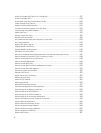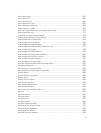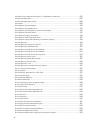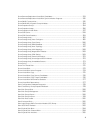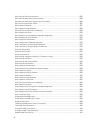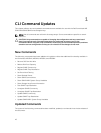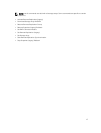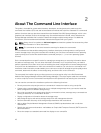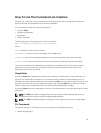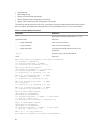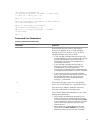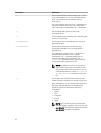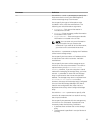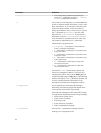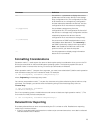
2
About The Command Line Interface
This guide is intended for system administrators, developers, and engineers who need to use the
command line interface (CLI) tool and its associated commands and script files. Selected CLI commands
perform functions that can also be accessed from the Modular Disk (MD) Storage Manager, which is the
graphical user interface (GUI) to the storage array. See the Administrator's Guide, which describes the
Storage Manager software that is used to create and manage multiple storage arrays. For additional
information, see the hardware and software manuals that shipped with your system.
NOTE: Always check for updates on dell.com/support and read the updates first because they often
supersede information in other documents.
NOTE: CLI commands do not have interactive warnings for destructive commands.
CLI is a software tool that enables storage array installers, developers, and engineers to configure and
monitor storage arrays. Using the command line interface, you can issue commands from an operating
system prompt, such as the Microsoft Windows command prompt (C:\) or a Linux operating system
terminal.
Each command performs a specific action for managing a storage array or returning information about
the status of a storage array. You can enter individual commands, or run script files when you need to
perform operations more than once (such as installing the same configuration on several storage arrays).
A script file can be loaded and run from the command line interface. You can also run commands in an
interactive mode. Interactive mode enables you to connect to a specific storage array and rapidly enter a
command, determine the effect on the storage array, and then enter a new command.
The command line interface gives you direct access to a script engine utility in the Dell PowerVault
Modular Disk Storage Manager software (MD Storage Manager). The script engine reads the commands,
or runs a script file, from the command line and performs the operations instructed by the commands.
You can use the command line interface to perform the following functions:
• Directly access the script engine and run commands in interactive mode or using a script file.
• Create script command batch files to be run on multiple storage arrays when you need to install the
same configuration on different storage arrays.
• Run script commands on a storage array directly connected to a host, a storage array connected to a
host by an Ethernet, or a combination of both.
• Display configuration information about the storage arrays.
• Add storage arrays to and remove storage arrays from the management domain.
• Perform automatic discovery of all storage arrays attached to the local subnet.
• Add or delete Simple Network Management Protocol (SNMP) trap destinations and e-mail alert
notifications.
• Specify the mail server and sender e-mail address or Simple Mail Transport Protocol (SMTP) server for
alert notifications.
• Direct the output to a standard command line display or to a named file.
18



